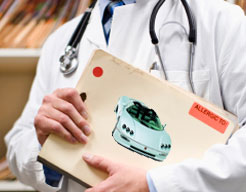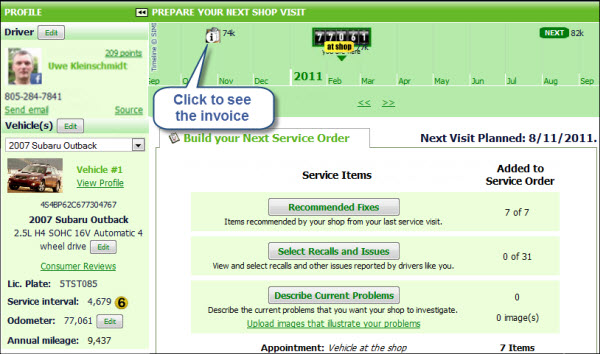We buy cars with the expectation that they function properly all the time. Feed it some gas from time to time and everything is going to be fine.
We go about our business every day and expect our body to function flawlessly. Feed it the right solids and liquids from time to time and everything is going to be fine.
No big deal. Nothing to talk about. Right. Really?
 Both our body and car have great self-sustaining mechanisms built in, which do not let them fail at the slightest hick-up of the system. Think of a software constantly monitoring our cars’ and bodies’ vital signs. They work to make sure that in case they deviate from the normal range, the body (or car) either compensates for the problem or sends an alert as pain or as a check engine light. This is beneficial in the long run, since it makes the body and car as reliable as possible. So why require a check-up then? Often the pain/engine light is only the last resort, and earlier detection may have eliminated the root cause, or at least its damage be minimized. We suffer from short breath caused by low fitness or low fuel-efficiency caused by carbon build up. And we only realize too late that we need to deal with diabetes or replace the whole set of spark plugs and more.
Both our body and car have great self-sustaining mechanisms built in, which do not let them fail at the slightest hick-up of the system. Think of a software constantly monitoring our cars’ and bodies’ vital signs. They work to make sure that in case they deviate from the normal range, the body (or car) either compensates for the problem or sends an alert as pain or as a check engine light. This is beneficial in the long run, since it makes the body and car as reliable as possible. So why require a check-up then? Often the pain/engine light is only the last resort, and earlier detection may have eliminated the root cause, or at least its damage be minimized. We suffer from short breath caused by low fitness or low fuel-efficiency caused by carbon build up. And we only realize too late that we need to deal with diabetes or replace the whole set of spark plugs and more.
How about we try to be preventive and listen to car and body experts taking our specifics (life-style and driving profile) into account when giving advice? Combine it with (the so much harder) listening to your body and car ourselves, and we should not only be in much better shape, but also save quite a bit of money and enjoy a longer life in our bodies and in our cars. Making sense? How can we do it then?
Let’s wave a magic wand for a moment. The ideal world would provide for the experts (us and our car/doctors) to be able to monitor the vital signs constantly, immediately detect issues and let us know what to do about it. Anywhere, anytime.
In the real world we are trying to get there, but need to take baby steps. (Not so) surprisingly, the approach to vehicle care is very similar:
Step 1: Lets start with archiving the medical/service records so we and the experts can look it up to determine what patterns and trends are the root cause of injury. Combined with the knowledge about similar body/car behavior of the same kind, a repair can be determined with more accuracy.
How to get our medical records? Ask your doctor. Does that work? Here is an interesting article about this – have you tried it?
How about our cars’ service history? Easy: Get your AutoVitals account and ask your shop to sign up for AutoVitals. You get your own secure account – just like online banking – and can look up your service history and ask your trusted service adviser the questions you need an answer for. Subscribe to recall alerts by email, and investigate issues other drivers have experienced with the same vehicle type. Shop visits will be scheduled based on how you drive and what shape your vehicle is in. This is optimal care so you don’t under-maintain or over-service your vehicle.
Step 2: Get the vital signs from your car to the remote doctor. Stay ready for this one in one of my next posts.
As always, “Be there or Be Triangle”, as our daughter Lina likes to say. See you next time here.
Uwe (Oova)
- Release Notes V6.0.52 (TVP.X) and V5.0.58 (TVP Legacy) - October 23, 2020
- Release Notes V6.0.50 (TVP.X) and V5.0.57 (TVP Legacy) - October 11, 2020
- Release Notes V6.0.47 (TVP.X) and V5.0.56 (TVP Legacy) - September 26, 2020

